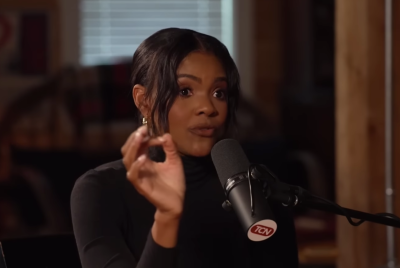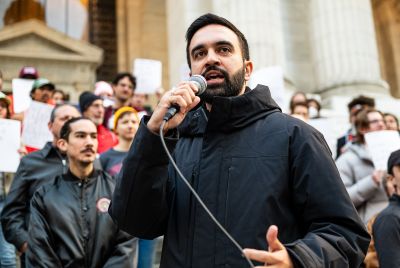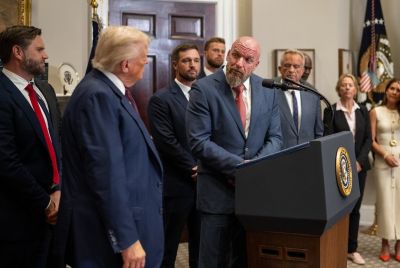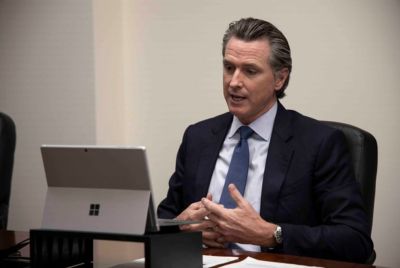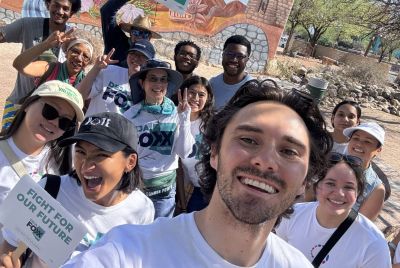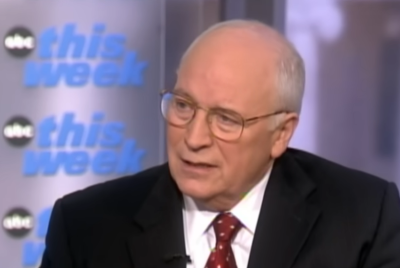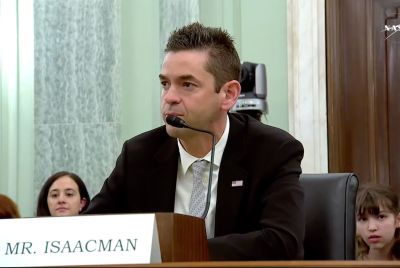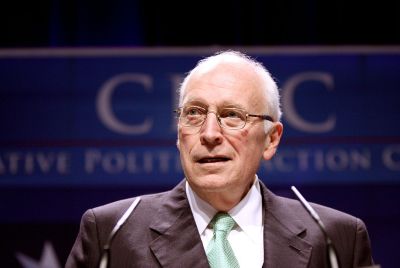Iran bars Mahmoud Ahmadinejad from shock attempt to regain presidency
Hardline former leader still has support within Iran but will not be allowed to stand.
Former Iranian President Mahmoud Ahmadinejad has been barred from running in the country's elections next month, according to a final list of approved candidates released on Thursday (20 April).
The hardliner, a two-term president who oversaw the country amid international sanctions over Iran's nuclear weapons program, initially said he would not run again, but caused shock when he announced to register last week.
Supreme Leader Ayatollah Ali Khamenei had advised him not to run – due to the unrest and deaths caused by his 2009 re-election – but Ahmadinejad decided to press ahead in what was seen as a snub of the country's highest authority.
However, Iran's Guardian Council – a group of influential jurists and clerics who are tasked with vetting the candidates – cut Ahmadinejad's aspirations short with its ruling on approved candidates.
The move comes at a risk for the council as Khamenei appoints six of its 12 members, which could thus be seen as rubber-stamping his will. Additionally, Ahmadinejad still enjoys political support within Iran as other hardliners approve of his tough-talking stance, especially in the wake of US President Donald Trump's election.
Rouhani seeks re-election
Current Iranian President Hassan Rouhani, who will seek re-election and has been approved by the council, has been criticised for being too soft in his stance towards the US and the West.
Rouhani negotiated the landmark nuclear deal signed with Western powers in 2015, exchanging the lifting of sanctions for the curbing of Iran's nuclear weapons programme, and regards it as one of his biggest achievements.
Also among the list of approved candidates are Ebrahim Raisi, a close ally of Khamenei; Mohammad-Bagher Ghalibaf, the mayor of Tehran; Eshaq Jahangiri, Rouhani's vice president; and relatively low-profile candidates Mostafa Agha-Mirsalim and Mostafa Hashemi-Taba.
Rouhani and Raisi are expected to square off mainly on economic issues, with three million of the country's 87 million population jobless.
Regardless of how the election plays out, however, Iranian officials will seek to minimise instability following the violent protests of 2009.
Televised debates have been called off to prevent candidates from inflaming supporters and a heavy police presence was already noticeable on the streets, according to state media.
"The bitter incidents [of 2009] will not be repeated," Tehran prosecutor Abbas Jafari Dolatabadi said, reported Reuters.
© Copyright IBTimes 2025. All rights reserved.




